Foods and Nutrients to Kickstart Any Wellness Routine This Year
It’s the start of a new year, which — for several people — means new resolutions or goals for the coming year.
How many times have you set a new resolution only for it to fade into the background by February?
What if it was possible to create habits that were sustainable enough to “stick” for the duration of the year? Even better news: it’s something you already do each day — eating!

Today we are cutting through the confusion of what exactly “wellness” looks like in the new year and how food can do far more for your body than satisfying hunger or altering a number on a scale.
We won’t be telling you to try the latest juice cleanse or cut any foods out entirely, but you will find some easy ways to care for your body as well as some delicious recipes to try! So whether you’re aiming to boost your mood, your energy, or improve your sleep, we have just what you need below.
Boost Your Energy
1. Eat Consistent Meals
It has happened to many of us…you wake up late, you’re running behind, and you race right past breakfast. Cut to: it’s 2:30 p.m. and you didn’t even realize you haven’t eaten all day.
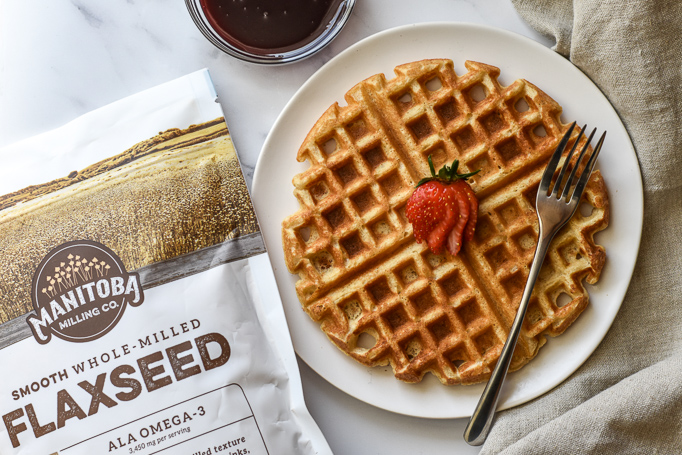
Avoid being hangry and crashing through the day by preparing yourself to eat consistently and keep your energy levels stable. If you are pressed for time, rely on simple recipes to prevent skipping meals.
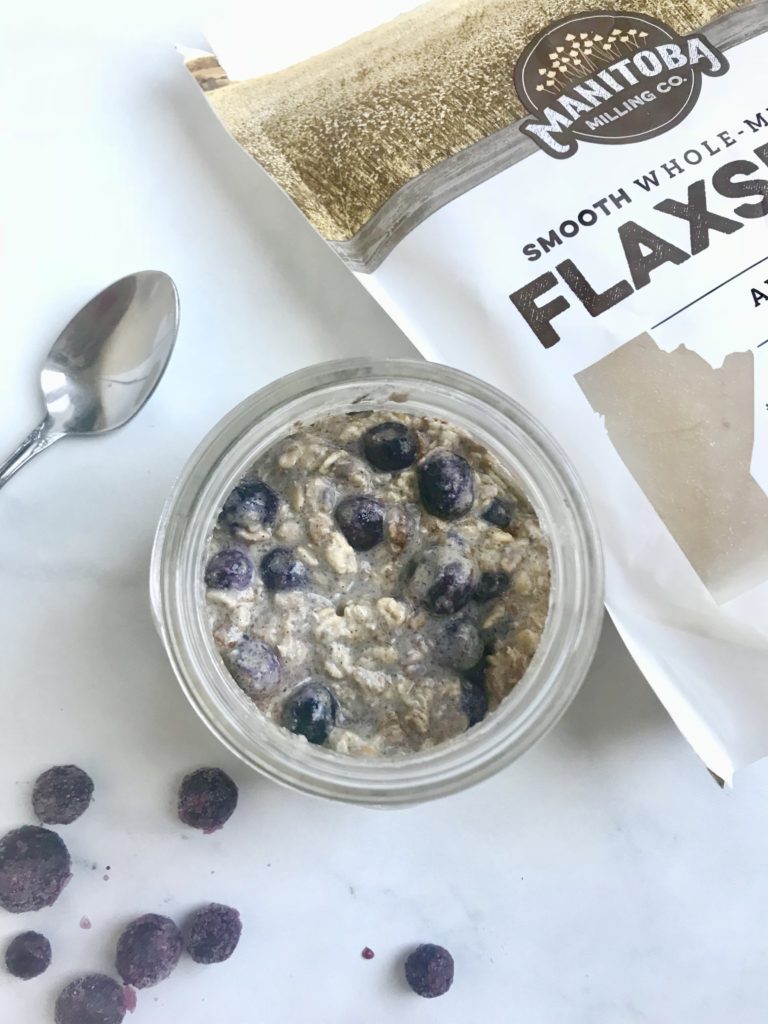
By tapping into your hunger cues and prepping yourself with nutritious meals and snacks, you will be able to perform at your best, even as circumstances around you change.
Don’t know where to start? We have plenty of recipes to start your new year deliciously here!
2. Add Fiber to Your Meals and Snacks
The fiber found in foods like fruits, vegetables, and flaxseed slow your body’s process of digestion so that it can keep your blood sugar stable and so you can be energized to take on your day to day life.

Most adults need to eat at least 25 grams of fiber throughout their meals, snacks, and drinks per day — are you getting enough? To learn more about the importance of fiber, you can check out this post!
For more ways to incorporate fiber into your life, check out these tips!
3. Stay Hydrated
You may have already heard how important it is to “stay hydrated” but do you know why it’s so important to drink water regularly?
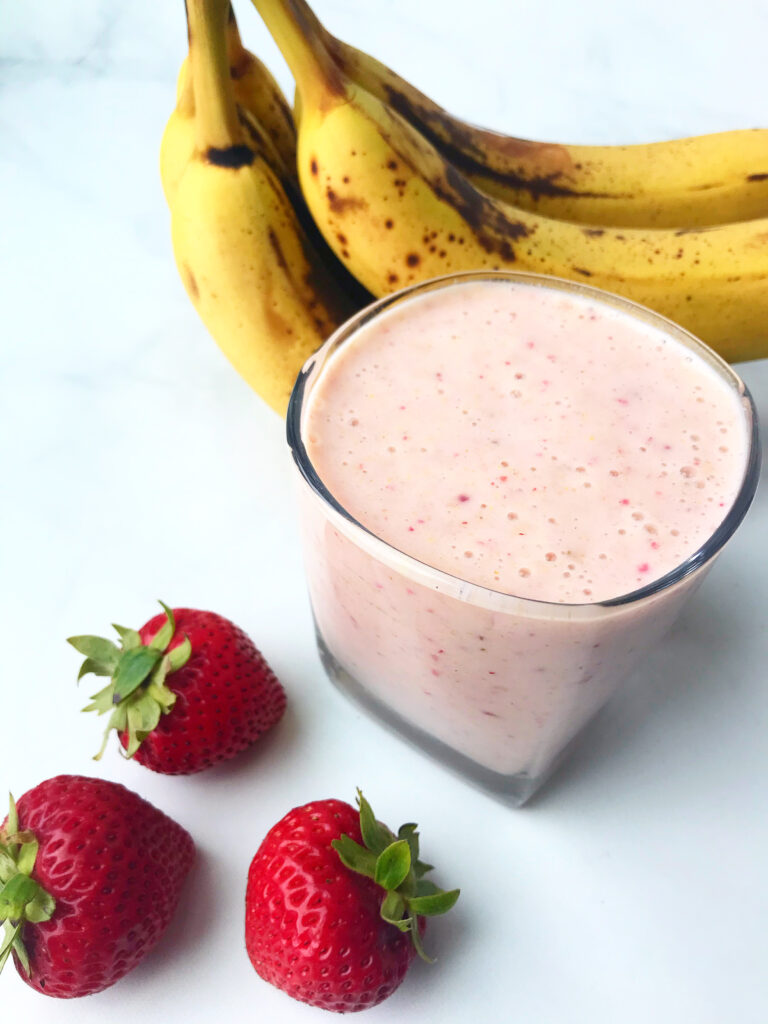
Your body is using water every second to regulate your blood pressure, mood, blood sugar, body temperature, brain function, and to even help you transition from laying down to standing up. Even mild dehydration can start having negative effects on these processes and emerging research is indicating that over long periods of time, this dehydration can increase cardiovascular disease risk (1).
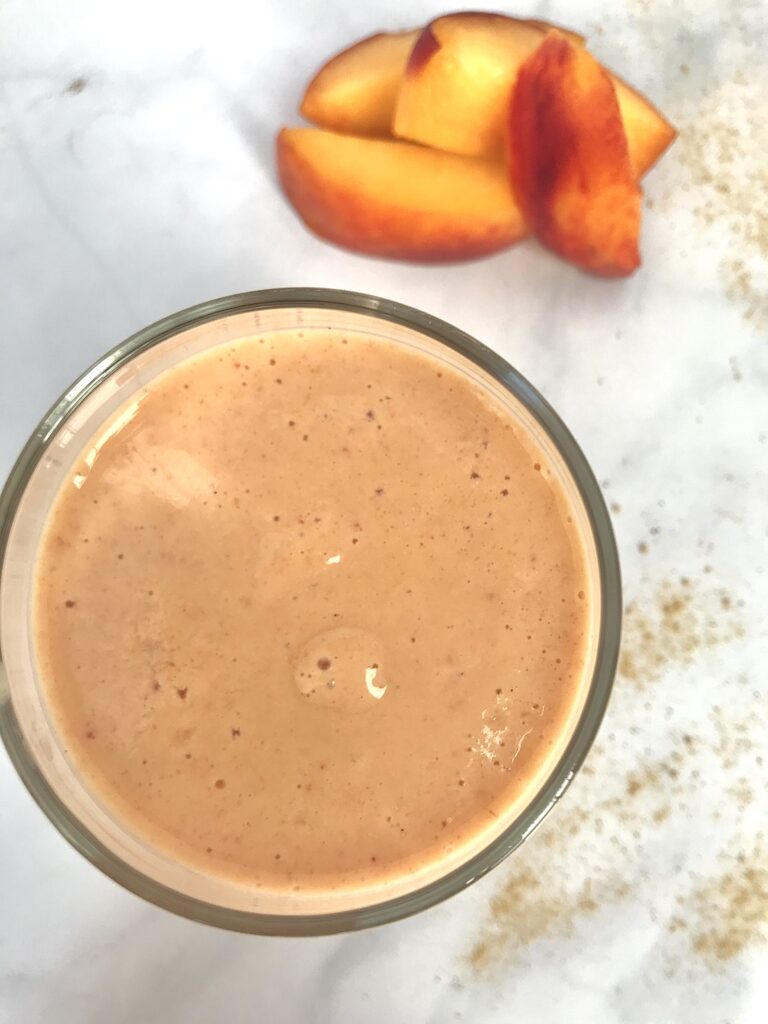
How much water is “enough?” A good place to start is taking your weight in pounds and dividing it in half, then aim to drink that amount of water in ounces throughout the day.
For example: if you weight 200 lbs, then you would work up to drinking 100 ounces of water each day.
Important note: Increase your water consumption slowly and be gracious to yourself if you aren’t reaching your goal instantly. Aim to spread your intake throughout the day instead of chugging a large amount at once.
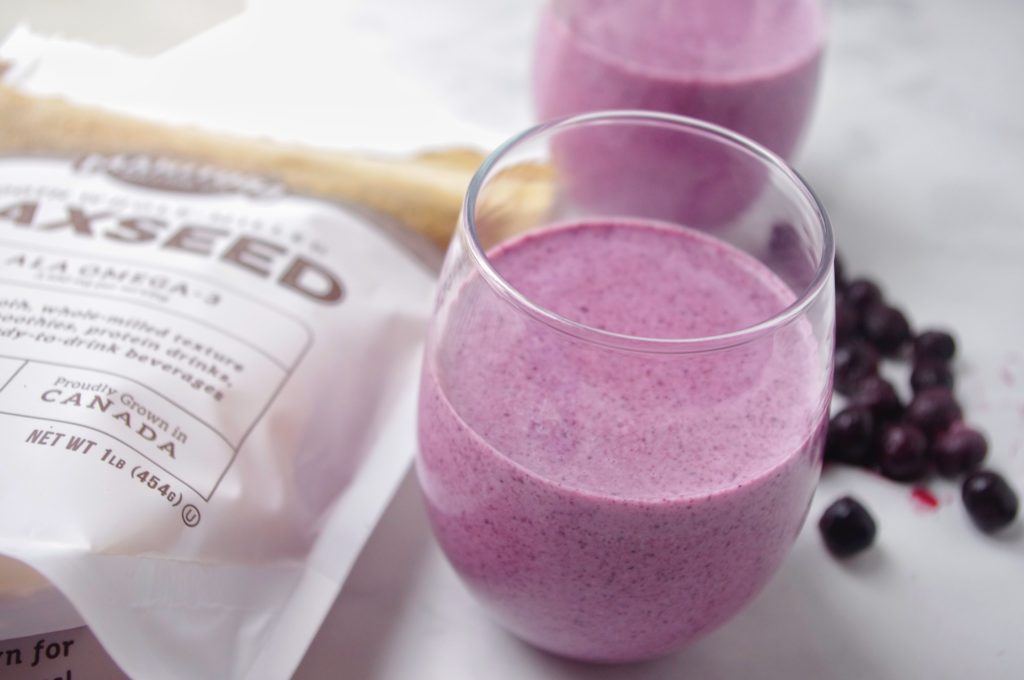
Need ideas for how to mix up your hydration routine? Try these five tips for making a healthier smoothie!
Boost Your Mood
1. Get Your Daily Vitamin D
Vitamin D has several important functions including helping build our bones and teeth, keeping our muscles, brain, and nerves functioning, and fighting off bacteria and viruses.
You can read more about the functions of Vitamin D and other immune boosting nutrients here!

Researchers are also looking into the correlation between Vitamin D deficiency and depression and anxiety disorders, so it’s worth making sure you are incorporating this fat soluble vitamin into your lifestyle (2).
You can get Vitamin D from the sun, through food or drinks, or from supplements. Vitamin D is in a limited number of foods, but is found in fatty fish like salmon or even in Manitoba Milling Co. Flax Milk!
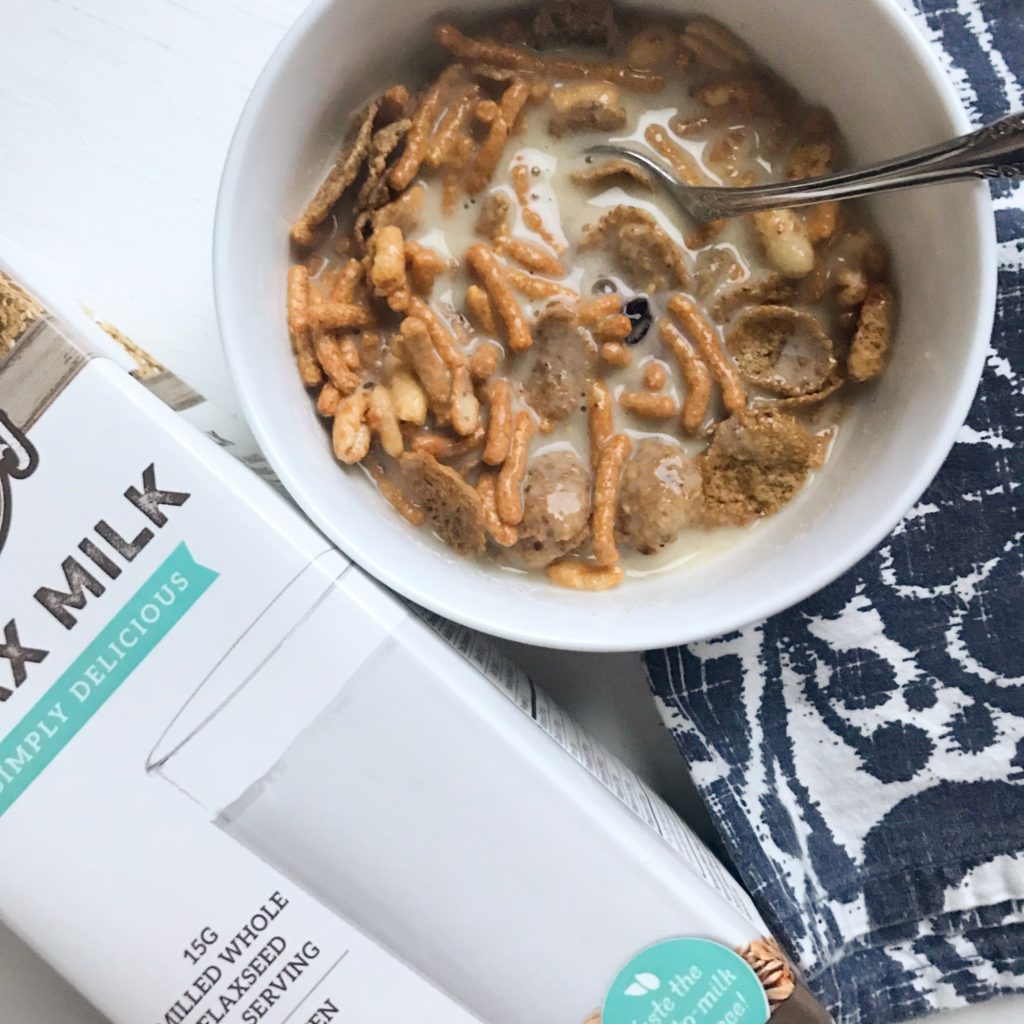
Adults need about 15 micrograms of Vitamin D per day. To put that in perspective, a serving of flax beverage contains about 2 micrograms and a serving of salmon contains about 12 (3).
Get all of your questions about flax beverage answered here!
Note: Consult with your healthcare provider before starting any supplements.
2. Consistent Movement
Exercise is one of the most common new year’s resolutions people make and often with the goal of weight loss. However, exercise has benefits far beyond the scale that might motivate you much more than a number of pounds could.
Regular exercise can build strength, spark your energy, relieve stress, and new research is even suggesting exercise can be an effective part of treatment for individuals with depression (4, 5).

So where do you find the motivation to get your 30 minutes a day, 5 days a week (4)? Start by finding an activity you actually enjoy doing! If you don’t like running, try something else!
Maybe it’s going for a bike ride with your kids, taking your dog on a walk, dancing to your favorite music. Finding something that brings you joy will help you remember how the movement made you feel and could likely motivate you to repeat it.
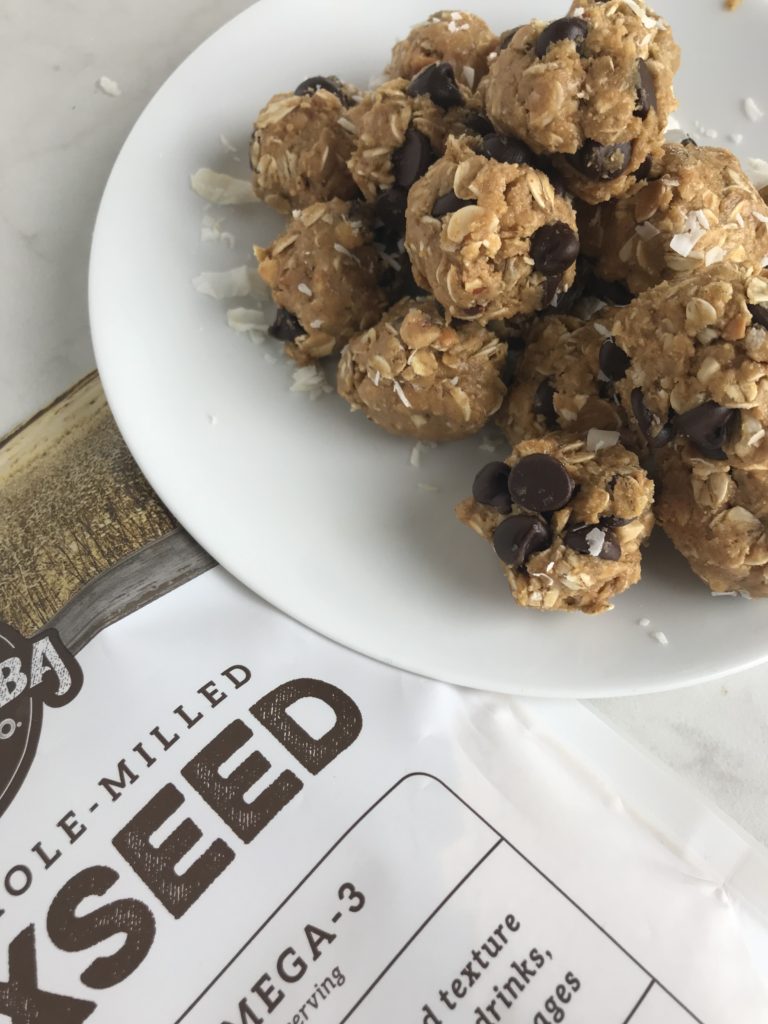
Don’t forget to fuel your workouts by eating meals and snacks throughout the day!
Consider trying these nutty flax bars, energy bites, or frozen chocolate protein bites!
Improve Your Sleep
1. Don’t Forget Your Magnesium
We may not be able to add more time to the day, but we can do our best to maintain a regular sleep cycle through our diet and lifestyle.
Research is showing that magnesium (in addition to being essential to several important processes) may improve insomnia symptoms and lower incidence of depression (6).

You can find magnesium in legumes, nuts, whole grains, green leafy veggies, and even flaxseed (7)!
You can read more about magnesium here.
2. Stick to a Nighttime Routine
Food isn’t the only way to get better sleep — you can also help your body shift into a posture of sleep by limiting screen time at least 30 minutes before bed and creating a “wind down” routine to signal your body that it is time to rest.
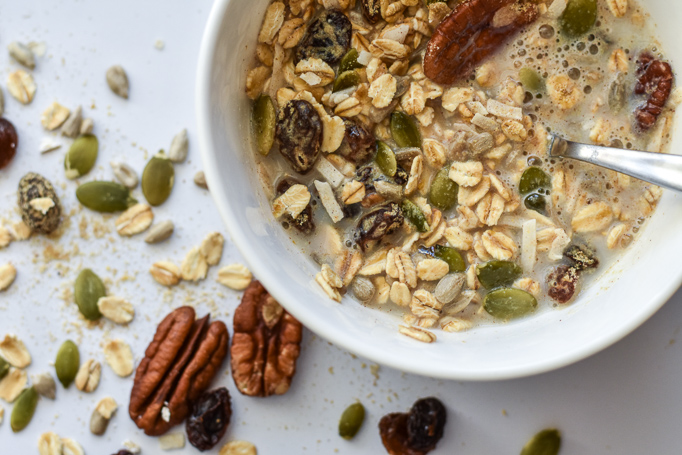
That may look like dimming lights, drinking a warm drink, having a snack if you’re hungry, brushing your teeth, etc. The more you get into a regular routine, the better your body will be prepared to rest at the appropriate time.
If you need ideas for a night time snack, try these homemade granola bars or flaxseed cereal.
Care For Your Heart
1. Get Your Omega-3 Fatty Acids
Adding omega-3 fatty acids to your meals and snacks can be a simple way to potentially lower your risk of heart disease as well as lower cholesterol and inflammation (8).
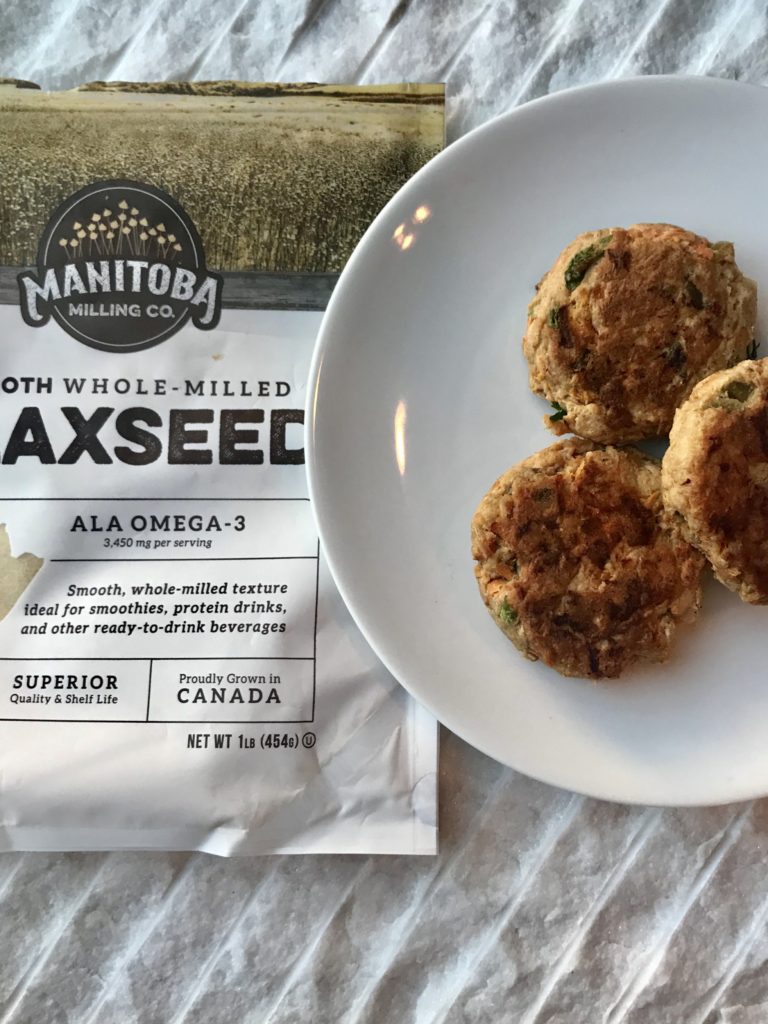
Since your body can’t make omega-3s, it’s important for us to eat them in what we eat. Flaxseed, walnuts, and “fatty fish” like salmon, sardines, and mackerel are great sources of omega-3s to add to your weekly meal plan! You can even double up and get an omega-3 boost with these salmon patties featuring flaxseed!
Check out this post to find ways to make sure you’re getting enough omega-3s.
This year, take some pressure off and focus on your overall wellness by refining habits that are already part of your daily routine. Making changes takes time, so be kind to yourself and give yourself grace as you try new things. You can start small with one change and gradually incorporate others — but take your time and celebrate progress along the way! Happy New Year!
Sources
- Watso JC, Farquhar WB. Hydration Status and Cardiovascular Function. Nutrients. 2019 Aug 11;11(8):1866. doi: 10.3390/nu11081866. PMID: 31405195; PMCID: PMC6723555.
- Casseb GAS, Kaster MP, Rodrigues ALS. Potential Role of Vitamin D for the Management of Depression and Anxiety. CNS Drugs. 2019 Jul;33(7):619-637. doi: 10.1007/s40263-019-00640-4. PMID: 31093951.
- National Institutes of Health. Strengthening Knowledge and Understanding of Dietary Supplements; Vitamin D. https://ods.od.nih.gov/factsheets/VitaminD-Consumer/
- https://www.nhlbi.nih.gov/health/educational/wecan/get-active/index.htm
- Murri MB, Ekkekakis P, Menchetti M, Neviani F, Trevisani F, Tedeschi S, Latessa PM, Nerozzi E, Ermini G, Zocchi D, Squatrito S, Toni G, Cabassi A, Neri M, Zanetidou S, Amore M. Physical exercise for late-life depression: Effects on symptom dimensions and time course. J Affect Disord. 2018 Apr 1;230:65-70. doi: 10.1016/j.jad.2018.01.004. PMID: 29407540.
- Cao, Y., Zhen, S., Taylor, A. W., Appleton, S., Atlantis, E., & Shi, Z. (2018). Magnesium Intake and Sleep Disorder Symptoms: Findings from the Jiangsu Nutrition Study of Chinese Adults at Five-Year Follow-Up. Nutrients, 10(10), 1354. https://doi.org/10.3390/nu10101354
- https://ods.od.nih.gov/factsheets/Magnesium-HealthProfessional/
- https://www.eatright.org/food/nutrition/dietary-guidelines-and-myplate/choose-healthy-fats
